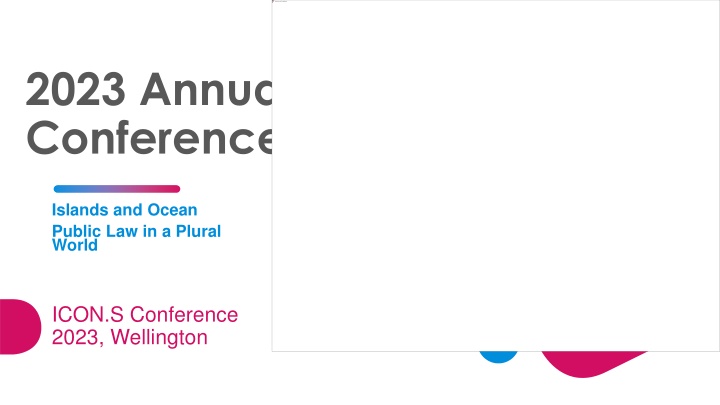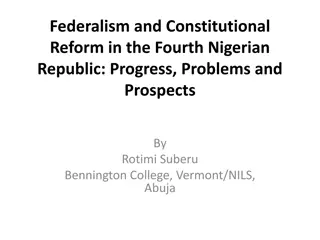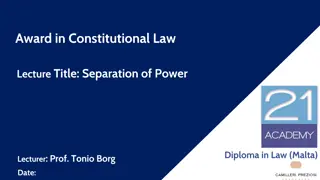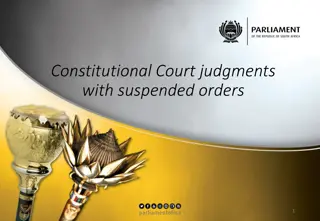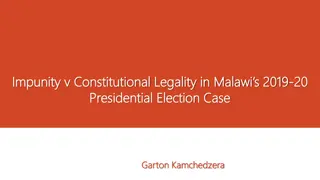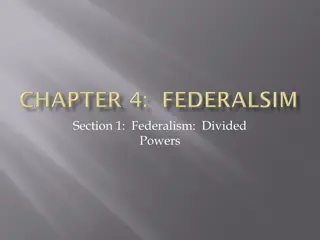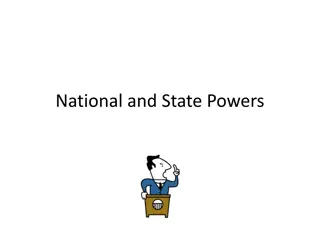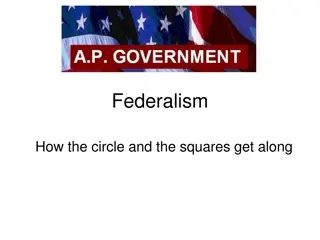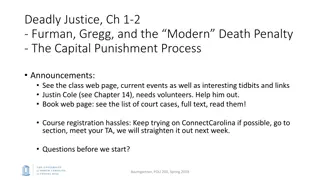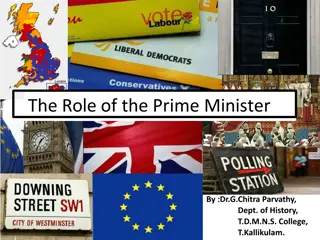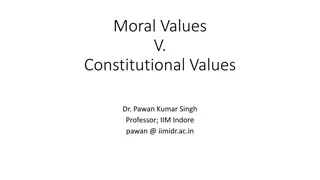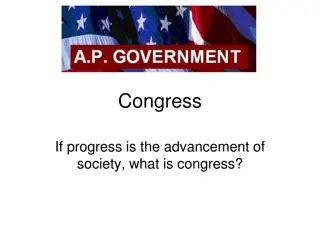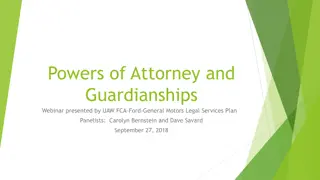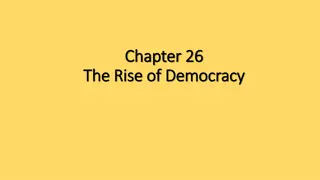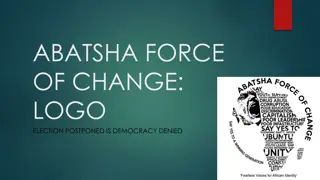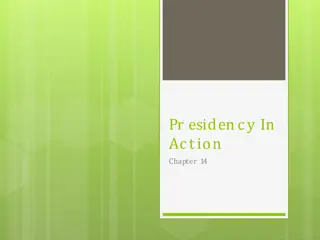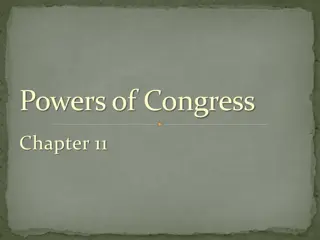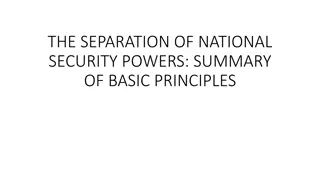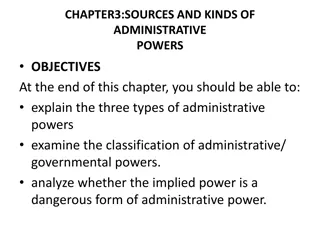Prerogative Powers in Constitutional Monarchies
Prerogative powers are historical privileges held by the monarch in constitutional monarchies, not legislated by Parliament. These powers include granting royal assent, summoning and dissolving Parliament, appointing government officials, conducting foreign affairs, and more.
Download Presentation

Please find below an Image/Link to download the presentation.
The content on the website is provided AS IS for your information and personal use only. It may not be sold, licensed, or shared on other websites without obtaining consent from the author.If you encounter any issues during the download, it is possible that the publisher has removed the file from their server.
You are allowed to download the files provided on this website for personal or commercial use, subject to the condition that they are used lawfully. All files are the property of their respective owners.
The content on the website is provided AS IS for your information and personal use only. It may not be sold, licensed, or shared on other websites without obtaining consent from the author.
E N D
Presentation Transcript
2023 Annual Conference Islands and Ocean Public Law in a Plural World ICON.S Conference 2023, Wellington
WHAT ARE PREROGATIVE POWERS? Features: are a set of powers and privileges historically held by the monarch in a constitutional monarchy; carried forward into colonial territories during the wave of colonization; do not come by legislation enacted by Parliament; can be replaced by substantive laws e.g. The now repealed UK Fixed Terms Parliament Act - significantly curtailed the prerogative power of the UK Prime Minister to dissolve Parliament and call for a general election at their discretion. can be exercised in consultation with the government and/or Ministers and some entirely unilaterally AND; 2 general types - general and reserve prerogative powers. 2
EXAMPLES General and Reserve Prerogative Powers General Reserve Granting Royal Assent: The monarch or their representative (such as a governor- general) has the reserve prerogative power to grant royal assent to legislation passed by the parliament. This power signifies the formal approval of the monarch and gives legal effect to the laws. The power to summon and dissolve Parliament; Appointing and dismissing the Prime Minister Opening and Closing Parliament: The monarch or their representative has the reserve prerogative power to open and close parliamentary sessions. This ceremonial duty marks the beginning and end of each session of the legislature. Appointing and Dismissing Government Officials: The executive has the prerogative to appoint and dismiss government officials, including ministers, ambassadors, and senior civil servants, without the need for legislative approval. Granting Pardons and Clemency: The power to grant pardons, reprieves, and commutations to individuals convicted of crimes is often considered a prerogative power of the executive. This power allows the executive to mitigate or set aside criminal punishments. Conducting Foreign Affairs: The executive has the prerogative to conduct foreign affairs on behalf of the state, including negotiating treaties, forming alliances, and representing the country in international relations. Granting Honors and Titles: The monarch often holds the reserve prerogative power to confer honors, titles, and awards to individuals who have made significant contributions to society. This can include knighthoods, peerages, and other forms of recognition. Commanding the Armed Forces: The executive holds the prerogative power to command and deploy the armed forces without the need for legislative approval, allowing them to respond to national security threats and emergencies. Diplomatic Functions: The monarch or the head of state may have the reserve prerogative power to conduct certain diplomatic functions, such as representing the country in diplomatic ceremonies, receiving foreign ambassadors, and hosting state visits. Issuing Executive Orders: The executive can issue executive orders, which are directives that have the force of law, to manage and govern the operations of the executive branch. These orders can address a wide range of issues, including administrative procedures, national security, and public policy. Commanding the Armed Forces: In some constitutional monarchies, the monarch retains the reserve prerogative power to command the armed forces. While the day- to-day control is exercised by the government, the symbolic role of the monarch as the commander-in-chief is significant. Declaring States of Emergency: The executive can declare a state of emergency during times of crisis or natural disasters, granting them additional powers to respond effectively and protect public safety. Granting Pardons and Clemency: The monarch or the head of state may possess the reserve prerogative power to grant pardons and clemency to individuals convicted of crimes. This power allows them to exercise mercy and compassion in exceptional cases. 3 Exercising Diplomatic Immunity: The executive has the prerogative to grant diplomatic immunity to foreign diplomats, protecting them from criminal jurisdiction and ensuring the smooth functioning of diplomatic relations
General Background Fiji was a former British Colony; Gained independence in 1970; History of 4 coups 1987 x2, 2000 and 2006; 3 coups undertaken by the Military; Fiji has a written constitution 1970, 1990, 1997 and 2013; Military comprising of an Army and Navy only. 3000pers with around 7000 TF/Reservists. Peacekeeping presence globally Sinai, Lebanon, South Sudan, East Timor and Bougainville AND; 2 major racial groupings in Fiji Indigenous I-Taukei and Indians. 4
Qarase v Bainimarama 2 Decisions High Court and Court of Appeal Background: following the civilian coup in 2000, Commander Bainimarama installs Qarase as interim PM on 04 July 2000; 16 March 2001 following the dissolving of Parliament, Qarase is appointed as caretaker PM; August 2001 National Elections are held and Qarase is Elected as PM; May 2006 Qarase is again elected as PM; rift begins between Commander Bainimarama and PM Qarase; 5 Dec 2006 Bainimarama executes a coup. Steps in as President, appoints Interim PM who advises him to dissolve Parliament and dismiss PM Qarase. Interim PM resigns and Bainimarama steps in as PM. Executive Power handed back to President who ratifies the actions of Bainimarama AND; ousted former PM begins legal challenge in the High Court of Fiji. 5
Issue Whether under the Fiji Constitution President discretion to dismiss a Prime Minister and dissolve Parliament in circumstances than those set out in s.109? the the had other 6
Section 109 Dismissal of Prime Minister: (1) The President may not dismiss a Prime Minister unless the Government fails to get or loses the confidence of the House of Representatives and the Prime Minister does not resign or get dissolution of the Parliament. (2) If the President dismisses a Prime Minister, the President may, acting in his or her own judgment, appoint a person as a caretaker Prime Minister to advise dissolution of the Parliament. 7
High Court - Oct 2008 The High Court decision in the case is released. Ruled that the President, as Head of State, retained prerogative powers to act according to discretion for the public good, without the prescription of law . Such prerogative powers were not limited by the Constitution. Prerogative powers are a residue of the absolute powers of ancient monarchs and attach to the position. First the settlers took with them all of the Laws of England as applicable to their new situation. Second, under the imperial unity of the Crown the prerogative automatically took root in the distant colonies . That the ADD A FOOTER prerogatives travelled to the colonies.. 8
the constitution has never been intended as a complete code; we find that the relevant prerogatives have not been abrogated by the Constitution; we are dealing with the most fundamental of the reserve powers of the Head of State AND; we do not find the scheme, order or words of the Constitution to have replaced such powers. Qarase hence lost the case. The decision of the President to ratify the dismissal of the Prime Minister and his ministers, to appoint a Caretaker Prime Minister to advise the dissolution of Parliament, and the dissolution of Parliament itself, were all held to have been valid and lawful acts in exercise of the prerogative powers of the Head of State. 9
Court of Appeal April 2009. It was also said that given Fiji s coup culture the drafters of the Fiji Constitution, and the Fijian people, in adopting the 1997 Fiji Constitution would have wanted as much certainty as they could obtain in the provisions dealing, in particular, with the dismissal of a Prime Minister. Under the Fiji Constitution it was not intended that the President, in the exercise of discretion, dismiss a Prime Minister in circumstances other than those set out in s.109. The Fiji Constitution is silent on other circumstances in which the President may dismiss a Prime Minister. The Fiji Constitution intended to delineate as precisely as possible the circumstances in which the President could dismiss the Prime Minister. Those circumstances did not include circumstances other than those set out in s.109 of the Fiji Constitution. It prescribes that the President may not dismiss the Prime Minister unless the Government fails to get or losses the confidence of the House of Representatives, and the Prime Minister does not resign or get a dissolution of the Parliament. Ultimately, the CA held that the dismissal of the PM and the dissolution of Parliament were unlawful acts under the Constitution. ADD A FOOTER 10
VICTORY? 11
Yes a system of monism (i.e. constitutional singularity) in the recognition of a plural world that Fiji is obviously in. A victory for legal realism and a contextual approach to the law; aligns with modern day criticisms of prerogative powers and international best practice i.e. lack of accountability, lack of transparency, lack of clarity, lack of democratic oversight and incompatible with modern governance AND; a mark for true independence and national sovereignty. 12
THE VERY NEXT DAY THE 1997 CONSTITUTION WAS ABROGATED BY COMMANDER BAINIMARAMA. FROM 2009 TO 2013 FIJI OPERATED WITHOUT A CONSTITUTION. DECISION HOWEVER STILL STANDS 13
